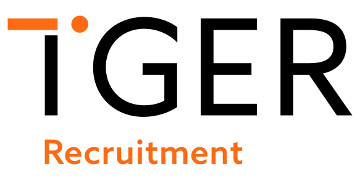Employees aged 18 to 26 (known as Generation Z, or Gen Z), have more demands than their older Millennial counterparts, Lu stated in a New York Post report, on 31 October.
“The average tenure of a Gen Z employee is much lower than their Millennial counterparts, so they really need to see the impact of their work to stay engaged,” Lu explained.
She added that Gen Z demands higher expectations for career progression and growth, that they want constructive feedback and flexible working options, and that they want to understand the purpose behind their work. Lu also described Gen Z employees as disinterested in office hierarchies, and more comfortable challenging their managers.
HR should ensure that Gen Z employees feel aligned with the culture and values of their company, according to Prianka Jaidka, HR business partner at estate agent chain LSL Property Services.
She told HR magazine: “To retain Gen Z employees, HR teams need to understand what motivates this generation, and create an environment that aligns with their values and expectations. Gen Z employees often seek purpose, flexibility and continuous development.”
Read more: Employers trying and failing to hire Gen Z
A worldwide survey of 2,000 Gen Z students and graduates from the LGBTQ+ community showed that eight in 10 avoided companies that had recently reduced support for LGBTQ+ people. The poll was commissioned by jobs platform myGwork; resulted were published on 8 October.
HR should align with Gen Z's values to improve their engagement in their work, according to Amna Zaidi, HR transformation consultant.
Speaking to HR magazine, she said: “This cohort flourishes in collaborative environments that encourage open dialogue and innovative thinking, fostering a culture of creativity.
“By implementing purpose-driven initiatives that empower them to contribute to strategic objectives, organisations can inspire ownership and accountability.
“Aligning with their values enhances engagement and loyalty, unlocking substantial value and positioning your organisation for sustained success in a dynamic marketplace.”
Gen Z employees are also driven by competitive salary and career progression, said Ellie Clutton, practice manager in HR, business support and accounting at recruitment firm Robert Half.
Clutton told HR magazine: “Our 2025 Salary Guide suggests that Gen Z is more demanding than any other when it comes to pay; 67% of business leaders indicate that remuneration expectations of Gen Z have increased since last year.”
Read more: Are Gen Z demands excessive or simply well-articulated?
Offering opportunities for development could help retain Gen Z employees, suggested Gaby Joyner, head of employee experience for Europe at business management consultant WTW.
Speaking to HR magazine, she said that HR could retain Gen Z employees by “offering articulated career paths, regular progression and pay rises, and thinking about how they gain experiences rather than just vertical progression".
She added: “Active career development (not just online courses) and career conversations, ongoing, regular feedback and feedforward advice, as well as offering flexibility of work styles with in-office collaboration is meaningful. Regular recognition activities, even if small, are meaningful and important for this generation.”
Gen Z employees are twice as likely as Boomer employees (aged 60-78) to consider quitting their job due to poor feedback, a survey of 2,000 office employees by technology company Brother, published on 17 October, showed.
HR should ensure that managers are trained in giving regular feedback, Jaidka noted.
She added that HR should "train managers to enable them to engage their teams effectively through transparent and open communication. Coach managers on making it a habit of providing regular feedback and meaningful check in meetings".










